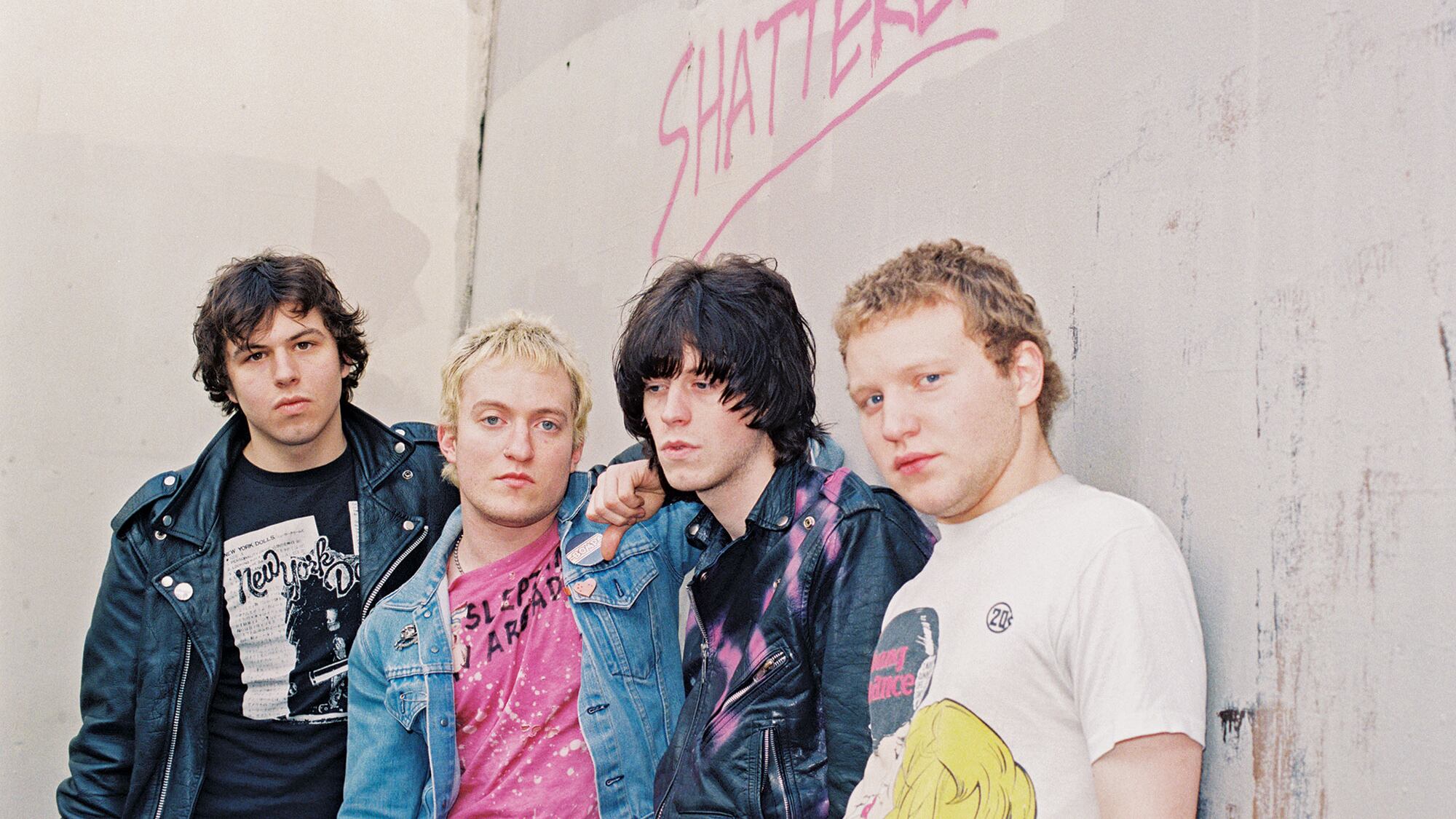Almost exactly 15½ years after the fatal car accident that claimed the lives of three young Portland musicians headed home from a tour following a string of sold-out shows and rising fame, the Exploding Hearts' star has never shined brighter.
The quartet's sole album, Guitar Romantic, slides up the pantheon with each reassessment by national arbiters, and their distant bubblegum-asphalt approach to edgy pop punk appears ever more prescient. The crushing weight of all that—and the loss of Adam Cox, Matt Fitzgerald and Jeremy Gage—builds with each new listener. Even after leaving both Portland and rock 'n' roll to work at a Bay Area school for autistic youth, lone surviving member Terry Six was besieged by prospective biographers and documentarians begging to help him tell the band's story.
A decade after the accident, when Six finally decided to participate in a proper accounting, he contacted Ardavon Fatehi—a talented music video director, accomplished documentary cinematographer and childhood friend whose own band opened for the very first Exploding Hearts show. Though it may come as a surprise, Fatehi at first turned him down.
"Anytime you start a band," Fatehi explains, "the idea's to become rock stars, right? It's unfortunate they got cut short, but, at the beginning, I was faced with the question of whether the band was even worth a documentary. They were starting out, getting a lot of notoriety, and I mean it just ended. They died. Is there more to this story?"
Two events would change his mind. Shortly afterward, Fatehi suffered his own car accident that left the filmmaker unable to work for more than a year, and Six, newly relocated to the Bay Area, began to play music again. The guitarist reached out to King Louie Bankston—the New Orleans indie icon and so-called Exploding Hearts' fifth Beatle—and they began a collaboration culminating in their debut, A Thousand Guitars. On Jan. 19, Terry & Louie performed selections from the album at a Los Angeles record-release show with a full band that included PDX bassist Chad Savage. Following the first public screening of an extended trailer for the documentary, they returned to play an Exploding Hearts set.
While the production remains a bare-bones effort financed by a few small investors, its scope has expanded alongside the ambitions of Terry & Louie as well as the director's slow recognition of his boyhood pals' global reach. Producer Alex P. Willson, introduced to the Hearts by Fatehi when they both attended film school in Chicago, was astonished by the band's steadily increasing cultural footprint.
"There's never actually been a book or a movie or even like a VH1 thing," Willson says, "but you see them in jukeboxes all over the country. You hear them in rock-'n'-roll bars in Italy. Their sound's all over the place. The legend's passed from one punk to another. It's taken on a life of its own. People have heard all these different ideas about what happened, but they don't know the real story."
As the filmmakers wait upon footage from Terry & Louie's upcoming tour and interviews with high-profile Exploding Hearts boosters, like Jack White and Green Day frontman Billie Joe Armstrong, industry powers have already begun sniffing around the project in anticipation of a final cut later this year. Meanwhile, Fatehi has entered the post-production process.
"I thought this would be a little thing we'd put together," he laughs. "It started off small, with just me and whatever equipment I could borrow driving up the coast to interview people. It was a huge scavenger hunt to get as much material as I could—home videos, photos, so many photos—and actually, I collected quite a bit more than I expected. A tragedy like this, I think you're going to hold onto memories a little bit more than you would otherwise."
In 2019, the chances of any hardscrabble pop-punkers cultivating a thrillingly distinct sound and vision in Portland's industrial eastside seems as unlikely as a band ascending to generational touchstone absent ruthlessly digitized origins. "It's all over-saturated now," says Fatehi.
"Everyone has a camera or recorder in their pocket, but not a lot's really known about these guys," he continues. "There's a kind of folklore, and this band was maybe the last time in our society where that could mean something. Whatever we reveal from behind the curtain, I think we have to keep the legacy alive. They were beautiful boys who deserve their story to be told."

